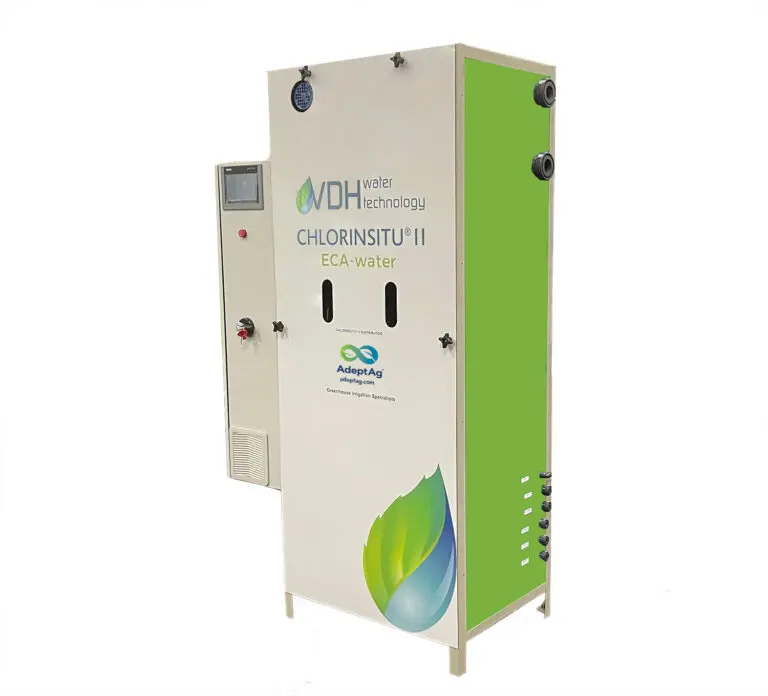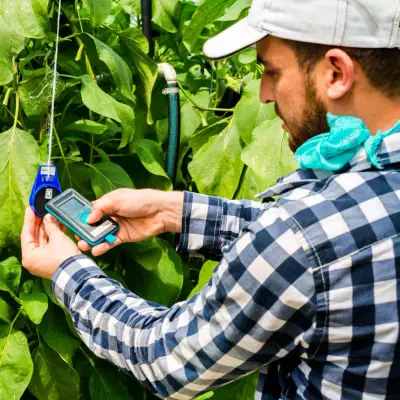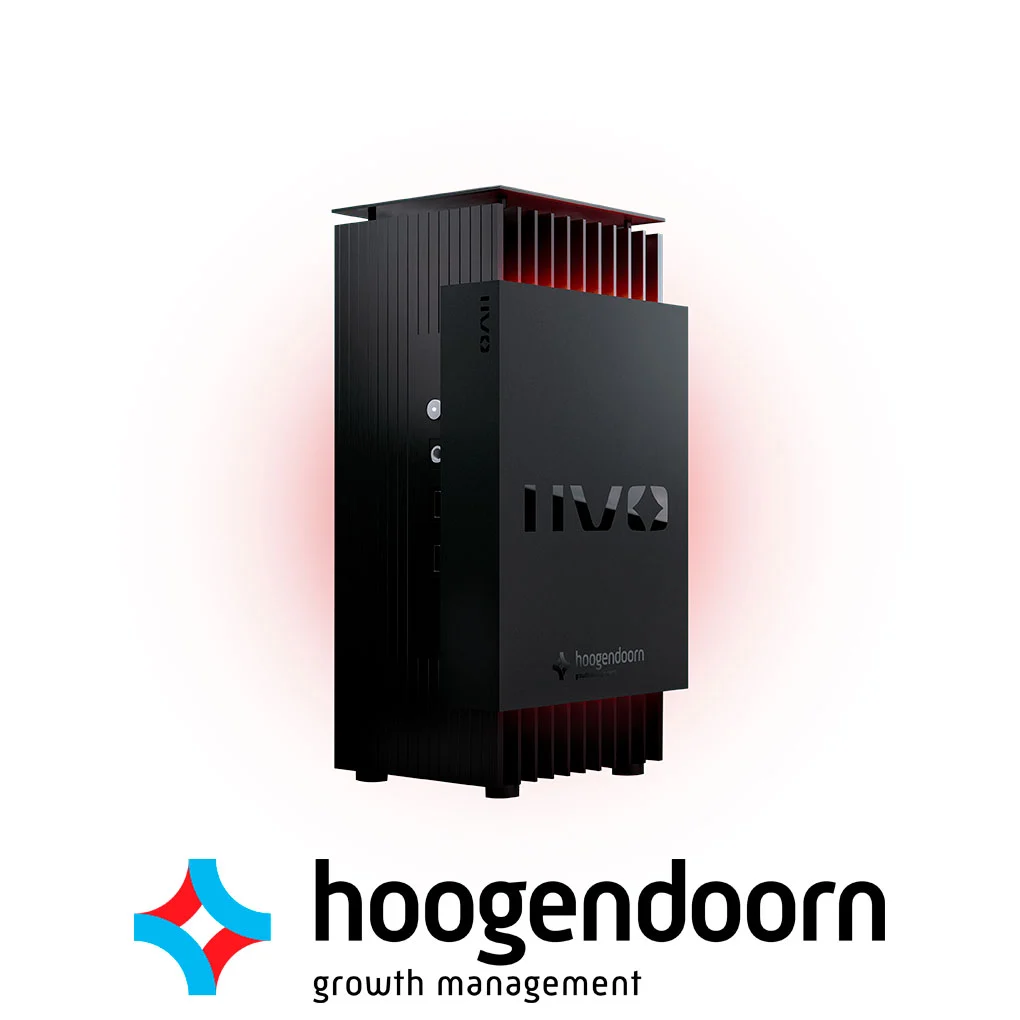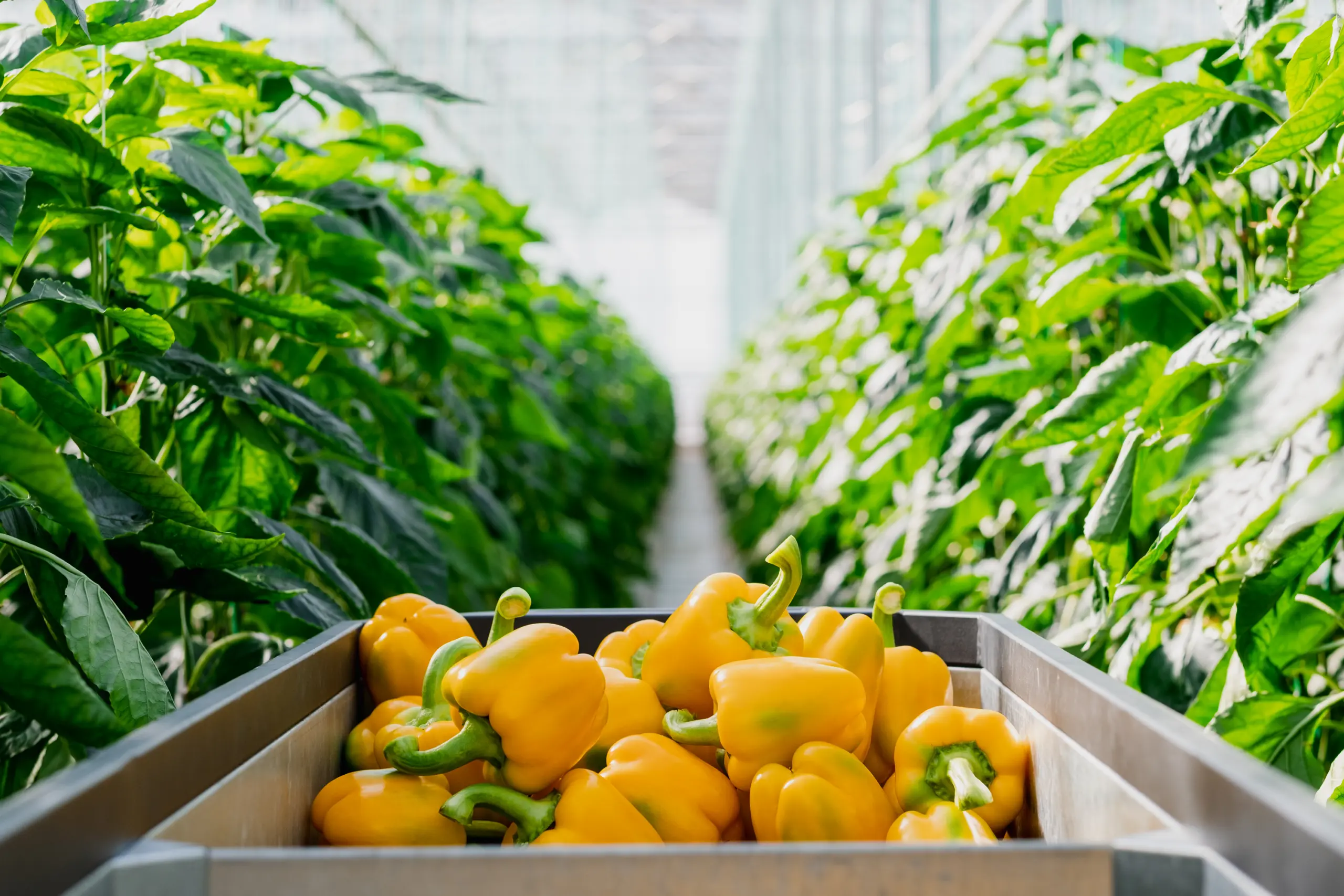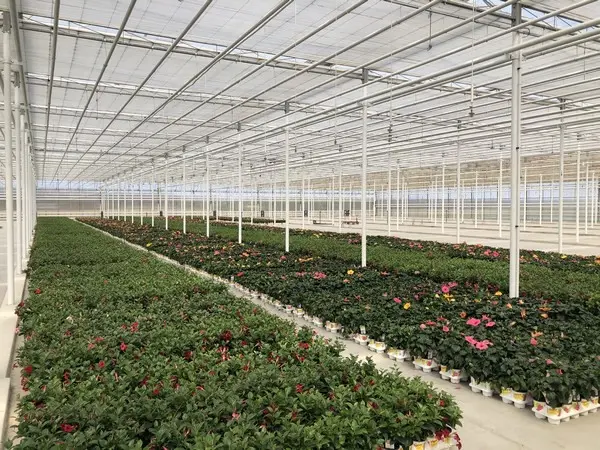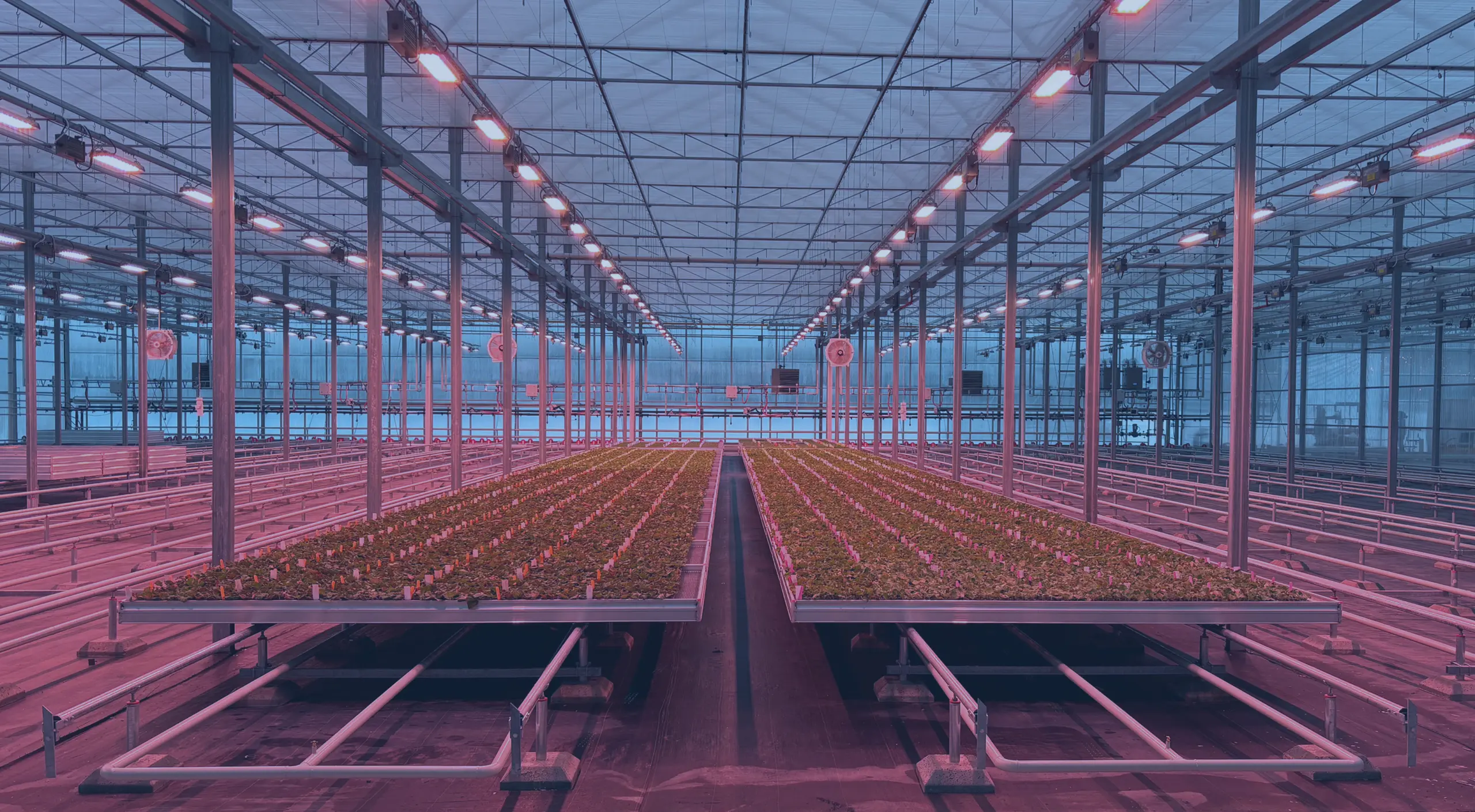
The Importance of Preventative Maintenance in Controlled Environment Agriculture, Greenhouses, and Nurseries
The Controlled Environment Agriculture (CEA) industry, which encompasses greenhouses and nurseries, relies heavily on three key technologies to play pivotal roles.
Automation, irrigation, and climate control systems are three distinct yet equally critical systems that demand careful and recurring observation and evaluation. These technologies are relied upon to ensure optimal growing conditions, enhance productivity, and improve resource efficiency. However, the key to maximizing the longevity and functional benefits of systems application is regular proactive maintenance.
This article delves into the importance of such maintenance, highlighting its impact on system performance, crop health, operational costs, and sustainability.
Automation Systems
Automation in CEA and Horticulture involves the use of technology to control various processes; from seeding and harvesting to internal value-added processes like grading, transplanting, internal transportation, sorting, and shipping. These systems include sensors, actuators, and control software that work together to maintain optimal conditions. Preventative maintenance of automation systems is essential for several reasons:
- Minimized Downtime: regular maintenance helps identify and rectify potential issues before they lead to system failures. This minimizes downtime, ensuring continuous operation and preventing disruptions that could negatively impact crop growth and yield.
- Optimal Performance: over time, components of automation systems can degrade due to wear and tear. Regular maintenance ensures that sensors are calibrated, actuators are functioning correctly, and software is updated. This ensures the system operates at peak performance, maintaining precise control over environmental conditions.
- Cost Efficiency: unexpected breakdowns can be costly, not only in terms of repairs but also due to the potential loss of crops, loss of production capacity, and idle labor. Preventative maintenance helps avoid these sudden expenses by addressing issues early, leading to more predictable and manageable maintenance costs.
- Extended Lifespan: well-maintained automation systems have a longer operational lifespan, sometimes doubling or tripling the serviceable life of a machine. Regular checks and servicing prevent premature failure of individual components or cascading effect of parts failures of critical systems, thereby extending the life of the entire machine and providing a better return on investment.
Irrigation Systems
Efficient and intelligent water management is critical in CEA, and advanced irrigation systems are designed to deliver the right amount of water prepared to the right specifications to plants at the right time. These systems include drip lines, booms, sprinklers, and fertigation units. Preventative maintenance of irrigation systems is vital for several reasons:
- Water Efficiency: regular maintenance ensures that irrigation systems are free from clogs and leaks. This prevents water wastage and ensures that plants receive the precise amount of water they need, promoting healthy growth and reducing runoff.
- Nutrient Delivery: in systems that include fertigation, maintenance ensures that adequate nutrients are delivered uniformly to all plants. This is crucial for preventing nutrient imbalances that can affect crop health and yield whether a plant is at the start of the irrigation cycle or at the end of the irrigation cycle.
- System Reliability: by regularly inspecting and maintaining pumps, valves, and filtration units, growers can prevent unexpected failures that could disrupt the irrigation schedule and cause stress to plants . Reliable irrigation is essential for maintaining consistent crop quality.
- Cost Savings: preventative maintenance helps avoid costly repairs and replacements, it also reduces water and energy consumption, leading to lower operational costs and more sustainable resource use.
Climate Control Systems
Climate control systems in CEA environments regulate temperature, humidity, CO2 levels, and ventilation to create optimal conditions for plant growth. These systems include HVAC units, fans, vents, dehumidifiers, heaters, and cooling pads. Preventative maintenance of climate control systems is critical for several reasons:
- Consistent Growing Conditions: regular maintenance ensures that climate control systems operate efficiently, maintaining stable temperature and humidity levels. Consistency is key to preventing plant stress and ensuring uniform growth and development.
- Energy Efficiency: well-maintained systems operate more efficiently, consuming less energy to achieve the desired environmental conditions. This reduces operational costs and the carbon footprint of the facility.
- Improved Air Quality: regular cleaning and maintenance of filters and ventilation systems prevent the buildup of dust, mold, and other contaminants. This improves air quality, reducing the risk of plant diseases and promoting a healthier growing environment.
- Preventative Problem Identification: routine checks can identify potential issues, such as refrigerant leaks or faulty sensors, before they escalate into major problems. Early detection and repair prevent costly breakdowns and ensure continuous operation.
Integrating Preventative Maintenance into CEA & Horticulture Operations
To fully leverage the benefits of preventative maintenance, CEA operators should implement a structured maintenance program that includes the following elements:
- Scheduled Inspections: regularly scheduled inspections of all systems ensure that potential issues are identified and addressed promptly. These inspections should be conducted by trained personnel who can accurately assess the condition of the systems.
- Comprehensive Checklists: detailed checklists for each system component help ensure that no aspect of maintenance is overlooked. These checklists should cover everything from sensor calibration to filter replacement, and belt tensions to electrical readings.
- Record Keeping: maintaining detailed records of all maintenance activities helps track the history of each system and identify recurring issues. This information is valuable for planning future maintenance and making informed decisions about system upgrades.
- Training and Education: providing ongoing training for staff ensures they are knowledgeable about the latest maintenance techniques and best practices. This empowers them to perform maintenance tasks effectively and recognize potential problems early.
- Use of Technology: leveraging technology, such as predictive maintenance software and remote monitoring tools, can enhance the effectiveness of maintenance programs. These tools can provide real-time data and alerts, helping operators stay proactive in their maintenance efforts.
It is important that all five of these activities are considered, and if possible scheduled, proactively, up to three months in advance. This way, all planned downtime can be factored into production planning and adjusted based on materials availability, labor supply, or weather conditions. Furthermore, with the introduction of new inputs like crops, trays, containers, or media, it is possible that multiple configurations need to be made for common systems, and operators need to understand when to choose which configuration to provide predictable results.
Conclusion
Preventative maintenance is a cornerstone of efficient and sustainable operations in the controlled environment agriculture, greenhouse, and nursery industry. By ensuring the reliability and optimal performance of automation, irrigation, and climate control systems; preventative maintenance enhances crop health, reduces operational costs, and extends the lifespan of critical equipment. Integrating a structured maintenance program into daily operations not only safeguards investments but also promotes the long-term success and sustainability of CEA enterprises. As the industry continues to evolve and adopt new technologies, the importance of preventative maintenance will only grow, underscoring its role in achieving high productivity and environmental stewardship.
For more information or to book a Service appointment, please call +1 888 BE ADEPT (232-3378) or visit Service Solutions.

